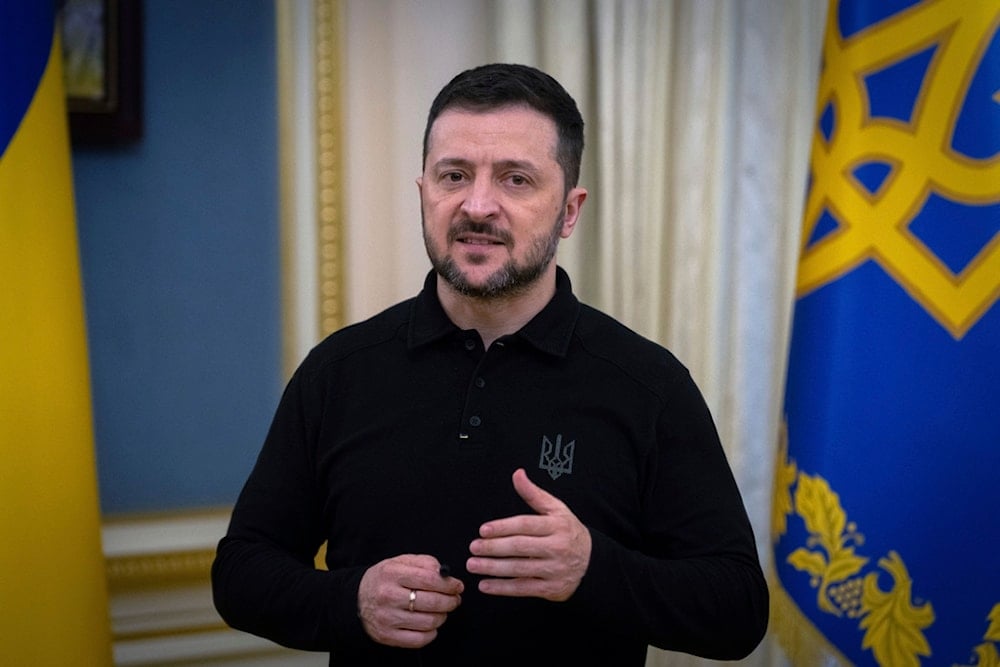Zelensky calls on allies to invest in Ukraine rare earth elements
Responding in an interview with Reuters, Zelensky said that Ukraine's reserves—estimated to be worth "trillions of dollars"—are not for unconditional exploitation.
-

Ukrainian President Volodymyr Zelenskyy speaks during his briefing in Kyiv, Ukraine, Wednesday, Feb. 5, 2025 (AP)
Ukrainian President Volodymyr Zelensky has proposed a partnership model for developing Ukraine's mineral wealth following remarks by US President Donald Trump, who suggested that continued military assistance to Kiev could be linked to access to rare earth elements.
Trump recently stated that the US seeks an agreement ensuring that Ukraine's critical mineral resources, including rare earths, would help "secure what we're giving them." His comments have sparked debate over whether Western support for Ukraine should come with economic strings attached, especially as the war with Russia nears its third year.
Ukraine possesses vast reserves of valuable minerals, including titanium, lithium, and uranium, which are crucial for industries such as aerospace, defense, and electronics. Some analysts see Trump's proposal as an attempt to ensure US access to these critical resources, particularly as global competition for rare earths intensifies.
Zelensky, responding in an interview with Reuters, said that Ukraine's reserves—estimated to be worth "trillions of dollars"—are not for unconditional exploitation. Instead, he encouraged foreign investment, stating, "We have mineral resources. This does not mean that we give them away to anyone, even to strategic partners." He positioned the issue as an opportunity for economic collaboration rather than a one-sided exchange, saying, "It is about partnership. Put your money in. Invest. Let's develop this together and make money."
Beyond economic considerations, Zelensky underscored the national security implications of these resources, warning that they must not fall into Russian hands. His stance reflects Ukraine's broader efforts to safeguard its sovereignty while securing international support.
Read more: Ukraine's lithium wealth diminishes as key deposits fall to Russia
Global Reactions and Political Implications
Trump's remarks have drawn mixed reactions from international leaders. German Chancellor Olaf Scholz firmly rejected the idea of conditioning military aid on resource deals, stating, "We are helping (Ukraine) without asking to be paid in return. This should be everyone's position."
Some Western policymakers fear that attaching economic conditions to aid could weaken long-term commitments to Ukraine, particularly at a time when Kiev is facing increased Russian advances in the east. However, others argue that integrating economic cooperation with security assistance could ensure more sustainable international support.
Meanwhile, discussions continue regarding a potential meeting between Trump and Zelensky. Trump has said he "probably" will meet his Ukrainian counterpart next week outside of Ukraine, though details have yet to be confirmed. Zelensky, for his part, acknowledged on social media that both sides were working out the logistics of future talks.
Trump has also positioned himself as a potential mediator in the war, urging both Kiev and Moscow to negotiate a resolution. While he has expressed willingness to meet with both Zelensky and Russian President Vladimir Putin, no concrete peace talks have been arranged.
Read more: Zelensky willing to hold direct talks with Putin to end war

 3 Min Read
3 Min Read








